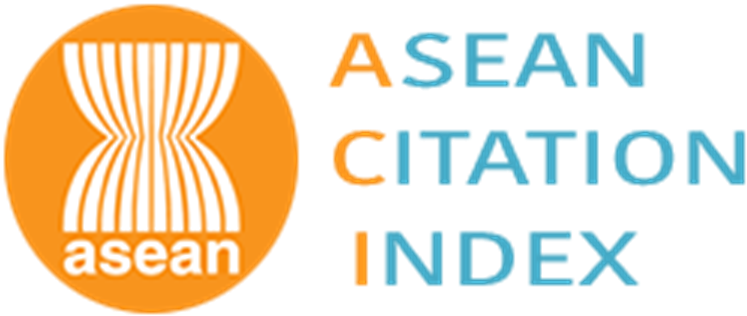การพัฒนารูปแบบศักยภาพผู้ควบคุมระบบบำบัดมลพิษน้ำของโรงงานอุตสาหกรรมประเภทอาหารในเขตเศรษฐกิจพิเศษภาคตะวันออกในยุคดิจิทัล
Development of Management Model for Wastewater Pollution Controller of Food Industry in the Eastern Economic Corridor in the Digita
Abstract
การวิจัยครั้งนี้มีวัตถุประสงค์ 1) เพื่อศึกษาองค์ประกอบของการพัฒนารูปแบบศักยภาพผู้ควบคุมระบบบำบัดมลพิษน้ำของโรงงานอุตสาหกรรมประเภทอาหารในเขตเศรษฐกิจพิเศษภาคตะวันออกในยุคดิจิทัล 2) เพื่อพัฒนารูปแบบศักยภาพผู้ควบคุมระบบบำบัดมลพิษน้ำของโรงงานอุตสาหกรรมประเภทอาหารในเขตเศรษฐกิจพิเศษภาคตะวันออกในยุคดิจิทัล และ 3) เพื่อจัดทำคู่มือแนวทางการพัฒนารูปแบบศักยภาพผู้ควบคุมระบบบำบัดมลพิษน้ำของโรงงานอุตสาหกรรมประเภทอาหารในเขตเศรษฐกิจพิเศษภาคตะวันออกในยุคดิจิทัล การวิจัยครั้งนี้เป็นการวิจัยแบบผสมผสานระหว่างการวิจัยเชิงคุณภาพและการวิจัยเชิงปริมาณ ประชากรที่ใช้ในการศึกษาวิจัยเชิงคุณภาพ คือ ผู้บริหารในกลุ่มโรงงานประเภทที่ 10 (การผลิตผลิตภัณฑ์อาหาร) ผู้เชี่ยวชาญด้านสิ่งแวดล้อม ผู้เชี่ยวชาญด้านการควบคุมดูแลระบบป้องกันสิ่งแวดล้อมเป็นพิษ ผู้ทรงคุณวุฒิด้านการพัฒนาทรัพยากรมนุษย์ และนักวิชาการที่เกี่ยวข้อง จากหน่วยงานภาครัฐ ภาคเอกชน และภาคการศึกษา จำนวน 10 คน กลุ่มตัวอย่างที่ใช้ในการวิจัยเชิงปริมาณ คือ ผู้ควบคุมระบบบำบัดมลพิษน้ำของโรงงานประเภทที่ 10 (การผลิตผลิตภัณฑ์อาหาร) ในเขตเศรษฐกิจพิเศษภาคตะวันออก ได้แก่ จังหวัดฉะเชิงเทรา จังหวัดชลบุรี และจังหวัดระยอง จำนวนทั้งสิ้น 232 คน เครื่องมือที่ใช้ในการวิจัยเชิงคุณภาพ ได้แก่ แบบสัมภาษณ์เชิงลึกกึ่งโครงสร้าง การบันทึกข้อมูลการประชุมสนทนากลุ่ม และแบบสอบถามการวิเคราะห์ข้อมูลเชิงคุณภาพใช้การวิเคราะห์เชิงเนื้อหา และการประเมินความเที่ยงตรงเชิงเนื้อหา การวิเคราะห์ข้อมูลเชิงปริมาณใช้การวิเคราะห์ทางสถิติโดยการแจกแจงความถี่ ค่าร้อยละ ค่าเบี่ยงเบนมาตรฐาน และการวิเคราะห์องค์ประกอบเชิงสำรวจ ผลการวิจัยพบว่า รูปแบบศักยภาพผู้ควบคุมระบบบำบัดมลพิษน้ำประกอบด้วย 3 ด้าน 11 องค์ประกอบหลัก มีดังนี้ 1) ด้านความรู้ มี 4 องค์ประกอบหลัก ได้แก่ 1) การควบคุม ตรวจสอบ และประเมินระบบบำบัดมลพิษน้ำ 2) กฎหมายและการบริหารจัดการมลพิษน้ำ 3) การสื่อสารและการใช้ประโยชน์เทคโนโลยีดิจิทัล และ 4) เครื่องจักร อุปกรณ์ และการซ่อมบำรุงระบบบำบัดมลพิษน้ำ 2) ด้านทักษะ มี 4 องค์ประกอบหลัก ได้แก่ 1) การบริหารจัดการระบบบำบัดมลพิษน้ำ 2) การปฏิบัติงานและควบคุมความปลอดภัยระบบบำบัดมลพิษน้ำ 3) การประยุกต์ใช้เทคโนโลยีดิจิทัล และ 4) การใช้ภาษาต่างประเทศ และ 3) ด้านคุณลักษณะที่พึงประสงค์ มี 3 องค์ประกอบหลัก ได้แก่ 1) ความเป็นผู้นำ 2) ความสำเร็จในงาน และ 3) ความมีมนุษยสัมพันธ์ โดยมีผลการประเมินรูปแบบจากการจัดประชุมสนทนากลุ่มย่อย โดยผู้ทรงคุณวุฒิ 12 คน มีมติเป็นเอกฉันท์ เห็นว่ารูปแบบศักยภาพผู้ควบคุมระบบบำบัดมลพิษน้ำมีความเหมาะสม และคู่มือแนวทางการพัฒนาศักยภาพผู้ควบคุมระบบบำบัดมลพิษน้ำผู้เชี่ยวชาญทั้ง 5 คน มีความคิดเห็นสอดคล้องกันทุกคนโดยเห็นว่าคู่มือมีความเหมาะสม สามารถนำไปประยุกต์ใช้ได้จริง
The purpose of this research is to investigate the core competencies required for wastewater treatment operators in food manufacturing companies located in Thailand's Eastern Economic Corridor (EEC) during the digital era. The outcomes will be presented in the form of a competency model framework and used to create a relevant manual, providing guidance to the target group. The research design combines both qualitative and quantitative approaches. The sample population for qualitative research included 10 individuals, comprising food industry executives, environmental specialists, supervisory environmental protection specialists, human resource development specialists, and academics from the public, private, and educational sectors. In the quantitative study, 232 water treatment operators of Category 10 (Manufacturing of Food Products) in the EEC provinces, namely Chachoengsao, Chonburi, and Rayong, were sampled. Qualitative research instruments included semi-structured focus group recordings and interviews. Content analysis and content validity approaches were applied for qualitative data analysis. Statistical analysis methods covered frequency distribution, percentage, standard deviation, and Exploratory Factor Analysis. The results revealed that the competency framework consists of 11 subcomponents, grouped into three main components: 1) Knowledge, with four subcomponents covering 1) control, inspection, and assessment of wastewater treatment works, 2) laws and regulations on water pollution control, 3) digital communication in the workplace, and 4) industrial wastewater equipment; 2) Skills, encompassing four subcomponents covering 1) wastewater treatment/management systems, 2) operation and safety control measures, 3) digital technology applications, and 4) language-based communication; and 3) Desirable Attributes, with three subcomponents covering 1) leadership, 2) professional success, and 3) human relations skills. Based on small-group discussions, a panel of 12 experts unanimously agreed on the appropriateness and significance of the formulated competency framework. Additionally, five experts gave unanimous consent to the suitability and efficacy of the developed guidance manual.
Keywords
[1] The Office of Industrial Economics. (2021) Summary of the Thai Industrial Economy in 2021 and Trends for 2022. [Online] (in Thai). Available: https://www.oie.go.th
[2] Office of the National Economic and Social Development Council. (2018) 20-Year National Strategy (2018–2037). [Online] (in Thai). Available: http://nscr.nesdc.go.th/wp-content/ uploads/2019/04/NS_Eng_A5.pdf
[3] Pollution Control Department. (2022) Assessment of Wastewater Generation Rates and the Amount of Water Pollutio n from Industrial Pollution Sources. [Online] (in Thai). Available: https://www.pcd.go.th
[4] T. Yamane, Statistics: An Introductory Analysis-3, 3rd ed. HarperCollins Publishers: New York, 1973.
[5] T. Silpcharu, Statistical data analysis and research by SPSS and AMOS. Bangkok, Thailand: SR Printing Mass Product, 2020 (in Thai).
[6] R. Likert, “A technique for the measurement of attitudes,” Archives of Psychology, vol. 22, pp. 5–55, 1932.
[7] D. C. McClelland, “Testing for competence rather than for intelligence,” American Psychologist, vol. 28, no. 1, pp. 1, 1973.
[8] L. J. Cronbach, “Statistical methods applied to Rorschach scores: A review,” Psychological Bulletin, vol. 46, no. 5, pp. 393, 1949.
[9] S. Angsuchot, S. Vijitwanna, and R.Phinyopanuwat, Statistical Analysis for Research in Social and Behavioral Sciences: Techniques for Using the LISREL Program. Bangkok Metropolis: Charoendeemankong, 2019 (in Thai).
[10] S. Wongthongdee, Human Resource Development (HRD). Bangkok, Thailand: Chulalongkorn University Press, 2013 (in Thai).
[11] K. Thongprasit, “Development of potential models for energy management personnel in textile industry factories under the control of the ministry of energy,” Ph.D. dissertation, Department of Industrial Business and Human Resource Development, Graduate College, King Mongkut's University of Technology North Bangkok, 2020 (in Thai).
[12] S. Tangsuwan, “The need for environmental personnel for provincial administration management,” M.S. thesis, Faculty of Graduate Studies, Mahidol University, 2003 (in Thai).
[13] C. Mekkaew, “Development model of boiler controllers for readiness to become heads of operations in industrial factorie,” Ph.D. dissertation, Program in Industrial Business and Human Resource Development, Graduate College, King Mongkut's University of Technology North Bangkok, 2015 (in Thai).
[14] P. Wattanatham, “Development model for enhancing the capability of industrial boiler quality control supervisors,” Ph.D. dissertation, Program in Industrial Business and Human Resource Development, Graduate College, King Mongkut's University of Technology North Bangkok, 2018 (in Thai).
[15] Department of Industrial Works. (2011) Environmental Technology in Factories, Ministry of Industry. [Online] (in Thai). Available: http:// www.diw.go.th.
[16] K. Thongprasit, “Competency development for personnel responsible for energy management in textile industry under the ministry of energy,” The Journal of KMUTNB, vol. 33, no. 1, pp. 315–326, 2022 (in Thai).
[17] K. Thongprasit, “Approaches for competency development of workforces in the manufacturing and service industry sector, eastern economic corridor (EEC): A case study of industrial land in Rayong province in Thailand,” Journal of Management Information and Decision Sciences, vol. 25, no. 3, pp. 1–18, 2022 (in Thai).
DOI: 10.14416/j.kmutnb.2024.09.013
ISSN: 2985-2145





